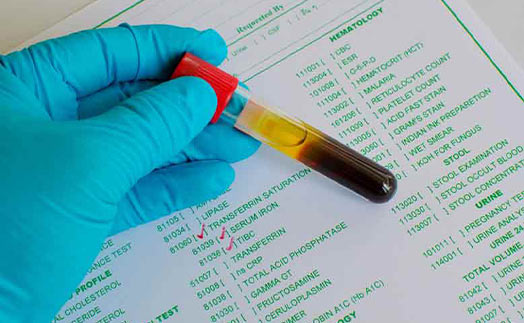Iron deficiency is a silent disease affecting your pace and energy.
Fatigue, Shortness of breath, and poor concentration are common symptoms.
Despite its prevalence, it often goes undiagnosed or unnoticed, potentially leading to health complications.
Iron is an essential mineral that plays a vital role in various body functions. When there is an inadequate supply of iron, the body cannot produce enough hemoglobin, leading to iron deficiency anemia. Also, our muscles can’t perform their best.
ON THIS PAGE:
- Causes of Iron Deficiency
- Symptoms of Iron Deficiency
- Treatment and Prevention
Causes of Iron Deficiency:
Iron deficiency can arise from various factors, including:
- Inadequate dietary intake: Consuming a diet low in iron-rich foods such as red meat, seafood, leafy greens, and legumes can contribute to iron deficiency.
- Increased iron needs: Certain individuals, such as pregnant women, infants, and adolescents, have higher iron requirements and may be more susceptible to deficiency.
- Poor iron absorption: Some conditions, like celiac disease, inflammatory bowel disease, or gastric bypass surgery, can impair the body’s ability to absorb iron efficiently.
Symptoms of Iron Deficiency:
Iron deficiency often manifests with subtle symptoms that are easily overlooked or attributed to other causes.
Some common signs include:
- Fatigue and weakness: Feeling tired, weak, or lacking energy, even after getting adequate rest.
- Pale skin and brittle nails: A pale or sallow complexion, as well as brittle or spoon-shaped nails, may indicate low iron levels.
- Shortness of breath: Difficulty breathing, especially during physical exertion or even at rest.
- Headaches and dizziness: Frequent headaches or dizziness can be associated with iron deficiency.
- Restless leg syndrome: An irresistible urge to move the legs, often accompanied by an uncomfortable sensation, particularly at night.
Treatment and Prevention:
The good news is that iron deficiency is treatable and often reversible.
Here are some effective strategies for managing and preventing iron deficiency:
- Iron-rich diet: Incorporate iron-rich foods into your meals, such as lean meats, poultry, fish, beans, lentils, spinach, and fortified cereals.
- Vitamin C for enhanced absorption: Consume foods high in vitamin C, like citrus fruits, tomatoes, and bell peppers, as it aids in iron absorption.
- Iron supplementation: In some cases, iron supplements may be prescribed by a healthcare professional to restore iron levels. It’s important to follow dosage instructions and consult a doctor before taking any supplements.
- Regular blood tests: Periodic blood tests can help identify iron deficiency before it progresses to anemia. If diagnosed, prompt treatment can prevent complications.
- Balanced lifestyle: Maintain a healthy lifestyle with regular exercise, adequate sleep, and stress management to support overall well-being.
- Intravenous (IV) iron therapy: In cases where oral supplementation is ineffective, not tolerated, or not feasible, intravenous iron therapy, also known as iron infusions, may be considered.
Iron Infusions: A Powerful Treatment Option
Iron infusions involve delivering iron directly into the bloodstream through a vein. This method allows for a more rapid and efficient replenishment of iron stores compared to oral supplements.
Here’s what you need to know about iron infusions:
Procedure: Iron infusions are typically administered in a healthcare setting, such as a hospital, medical centre or infusion centre, by a trained healthcare professional. The process involves inserting an IV line and slowly infusing iron solution into the vein.
Types of iron used: Iron infusions can involve different types of iron preparations, such as iron dextran, iron sucrose, ferric gluconate, or ferric carboxymaltose. The choice of iron formulation depends on the individual’s specific needs and considerations.
Efficacy and safety: Iron infusions are highly effective in rapidly replenishing iron levels. They are generally safe but can have potential side effects, including allergic reactions, low blood pressure, or injection site reactions. These risks are closely monitored during the procedure.
Benefits and considerations: Iron infusions can offer relief from iron deficiency symptoms more quickly compared to oral supplements. They are particularly useful in cases where oral iron is not well-absorbed or tolerated. However, it’s important to consult with a healthcare professional to determine if iron infusions are the appropriate treatment option for your specific situation.
We offer iron infusion in our clinic. It is a safe, effective and powerful way to treat patient suffering from severe IDA (iron deficiency anemia).
Consult today with one of our GP’s at Fitzroy North Doctors.


